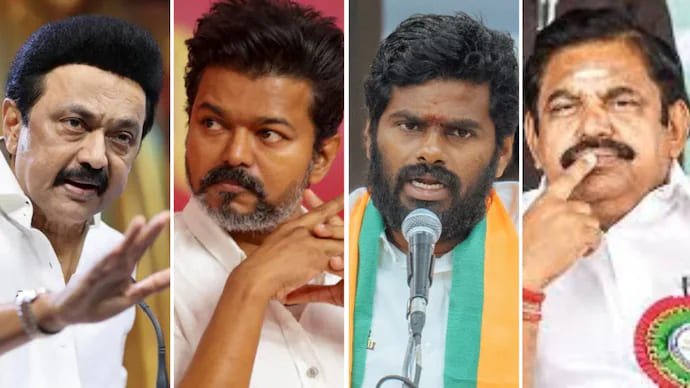Tamil Nadu 2026 Elections: Key Battlegrounds and Insights
The 2026 assembly elections in Tamil Nadu have already attracted significant attention. Political dynamics are shifting, and new leaders are entering the scene. This detailed analysis explores the crucial battlegrounds, evolving voter expectations, and strategies that may influence the outcome.
A Fresh Political Equation
Tamil Nadu’s politics are changing rapidly. DMK and AIADMK used to dominate, but now Tamilaga Vettri Kazhagam (TVK), led by Thalapathy Vijay, is gaining strength. TVK’s decision to contest independently challenges the status quo. Their emergence gives voters more choices and pushes other parties to adapt.
Voters in the state care about honest leadership. Many hope for better governance and more transparent policies. This desire for change is fueling interest in parties known for integrity and real development plans.
Focus Areas: Battleground Constituencies
Certain constituencies stand out in this election:
-
Madurai East: Vijay will contest from here. His presence in this region has convinced many first-time voters and energized local campaigns.
-
Chennai Central: This city constituency reflects urban priorities like jobs, infrastructure, and clean administration.
-
Coimbatore South: Factory labor, entrepreneurs, and the middle class shape this battleground. Candidates here focus on industrial growth and economic issues.
-
Vellore: Known for shifting loyalties, Vellore demands creative campaign efforts to engage its diverse voters.
-
Tiruchirappalli: The city and surrounding towns mix agriculture with new industries. Results here often signal state-wide trends.
Success in these areas often predicts broader victory.
Voter Trends and Concerns
Not all voters think about politics the same way. Many now prioritize education, job creation, water supply, and better healthcare. Women and young adults are especially active, demanding safety, fairness, and opportunity.
Issues like environmental protection and support for small businesses are gaining traction. Politicians who offer solutions stand to win decisive votes.
Transition words help create flow in the article. Meanwhile, parties must adapt their messaging to address these concerns. As conversations unfold, voters are alert for candidates who speak sincerely.
Challenges for Main Parties
Each major party faces unique challenges.
DMK holds power but faces scrutiny over corruption allegations. Their response to protests and local issues will influence their standing.
AIADMK has loyal supporters. However, without strong leadership and fresh promises, it risks losing ground.
TVK’s rise is notable, but the party needs to build networks statewide and transform fan enthusiasm into actual votes. Their reputation for transparency helps, yet fieldwork and policy clarity remain crucial.
Smaller parties and independents could tip the scales in close contests. They seek support from groups who feel unheard by bigger players.
Campaign Strategies and the Role of Media
Campaigning in Tamil Nadu goes beyond rallies. Parties use digital platforms, television debates, and social media influencers to connect with voters.
Transitioning from old methods, they invest more in grassroots outreach and targeted campaigns. These efforts close gaps between elected officials and ordinary citizens. Positive interactions can swing undecided voters.
The Road to Election Day
With voting day months away, excitement continues to build. Each party adjusts its strategy as new surveys, speeches, and alliances shift the balance. Real progress in health, education, and employment will sway many voters.
Election coverage remains vital. It helps citizens understand complex issues and evaluate the promises made by all candidates


